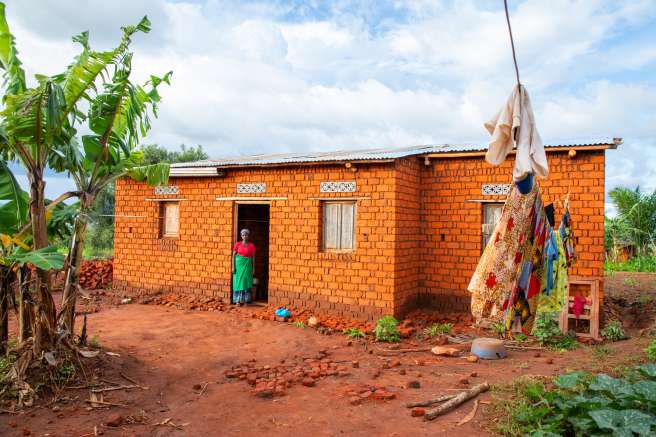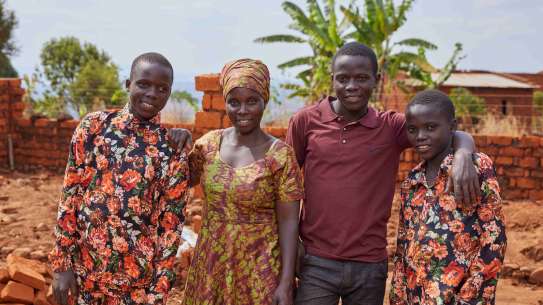Nestled in the hills of Makamba province in southern Burundi lies the remote village of Kayagoro, home to 35-year-old Aline Nibogora. Life for Aline, like many other women in Burundi has been far from a smooth road. Married at a young age, she went on to have six children and was confined to the family home to take care of her children and the household chores. Aline also suffered domestic violence from her husband.
Image credits and information
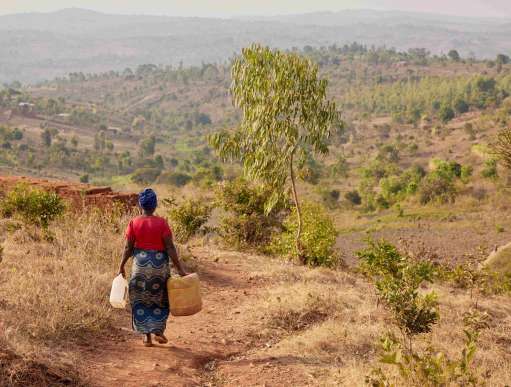
My husband regularly beat me. I couldn’t talk about it to anyone. One day he beat me so badly that he almost killed me. He would often jeer that he would kill me and bury me without anyone knowing.
According to a government survey from 2017, 36% of Burundian women and girls between the ages of 15-49 have experienced physical violence at least once and in nearly 60% of such cases, this violence was perpetrated by their husband or partner.
“I was in great pain and fled for my life. My husband wouldn’t allow me to take the children, so he sent them to live with his parents 50km away,” Aline added.
Having fled her home, Aline found herself living on the streets. She picked up small jobs but this was barely enough to get by and so she needed added support. She got in touch with a local committee, supported by Christian Aid’s local partner RCBIF with funding from Irish Aid, to explain her situation.
Image credits and information
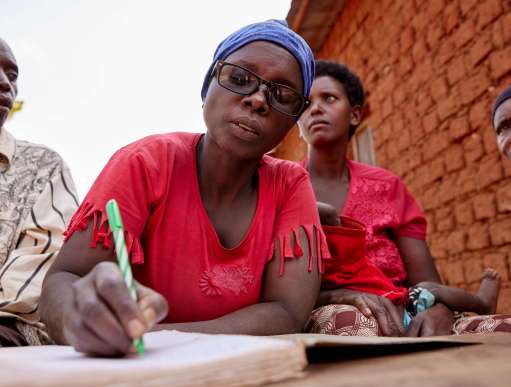
To help her to build a new life for herself, the committee provided Aline with training in leadership skills as well as how to kickstart and run a business to help her become financially independent.
Burundi ranks among the top ten poorest countries in the world, with more than 70% of Burundians living in poverty, with most living off the land in rural areas. To help improve people’s financial prospects, RCBIF has set up a village savings and loan association, which allows members to both save money and borrow from this collective fund to pay for emergency expenses such as medical care, as well as to set up or expand a business.
The group has nearly doubled to 25 members, which also include other survivors of gender-based violence like Aline. With her first loan, Aline bought avocados and peanuts in bulk and sold them to others in her village and its surrounds.
The teachers restored a sense of hope in me and an energy to take on initiatives. I used the profit to buy a bicycle to help transport the goods.
Thanks to her membership of the village savings and loan group, Aline was also able to save up enough money to expand her business, allowing her to buy a plot of land and to build a house of her own, enabling her to reunite with her children.
“I can now feed my children like other families, and when I get money, I can buy them everything they need,” Aline said.
“I also bought some solar panels. We now have electricity and the children are able do their homework in the evenings,” she added.
Image credits and information
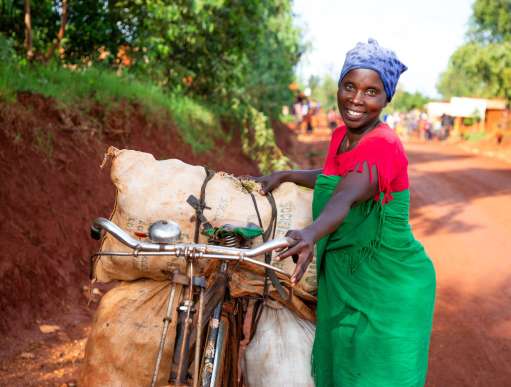
Almost 70 village savings and loan associations have been set up across southern Burundi by Christian Aid’s local partners thanks to funding from Irish Aid and they are helping to open up doors for people in impoverished communities, and in particular women. Women members have grown in confidence and are able to start independently earning an income by being able to secure a loan to start up their own businesses.
Earning their own income also means they are able to contribute to the household budget, whether to buy food or pay for schoolbooks and uniforms to help their children continue with their education. With more women becoming involved and many being elected to leadership positions within the groups, the perception of a woman’s role has started to change within communities, and for some women, the perception of their own selves.
“In most cases of sexual or gender-based violence the aftermath is that the women, the victims of violence, tend to be excluded from their community. They are looked at differently,” explains Christian Aid’s programme manager in Burundi Fidèle Nindagiye.
Image credits and information
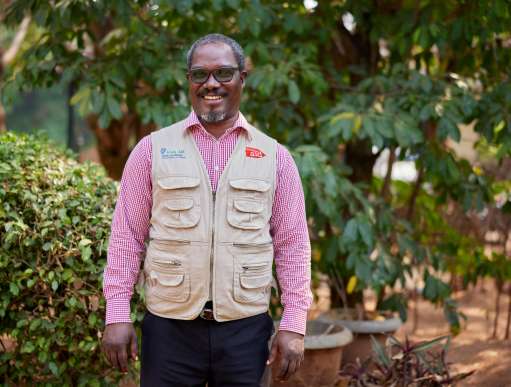
Fidèle explains that for survivors the savings and loan associations; “bring back dignity and a sense of contributing to the community, as well as towards their own welfare and economic status. In many instances we have seen women coming from very bad situations and they have really developed through the village savings and loans associations.”
For Aline, the training she received and membership of her group has opened up a new chapter in her life and engrained in her an entrepreneurial flare which shows no sign of wavering.
“In the next five years I hope that I will have a modern market in Kayogoro with many goods and that I will expand my business into other provinces. This is not a dream; it's a plan and I will do it,” Aline said.
Being part of the village savings and loan association has changed my life. I was very poor; I felt stuck in a box. But through the training I came to realise that a woman can achieve great things despite her gender.
Image credits and information
